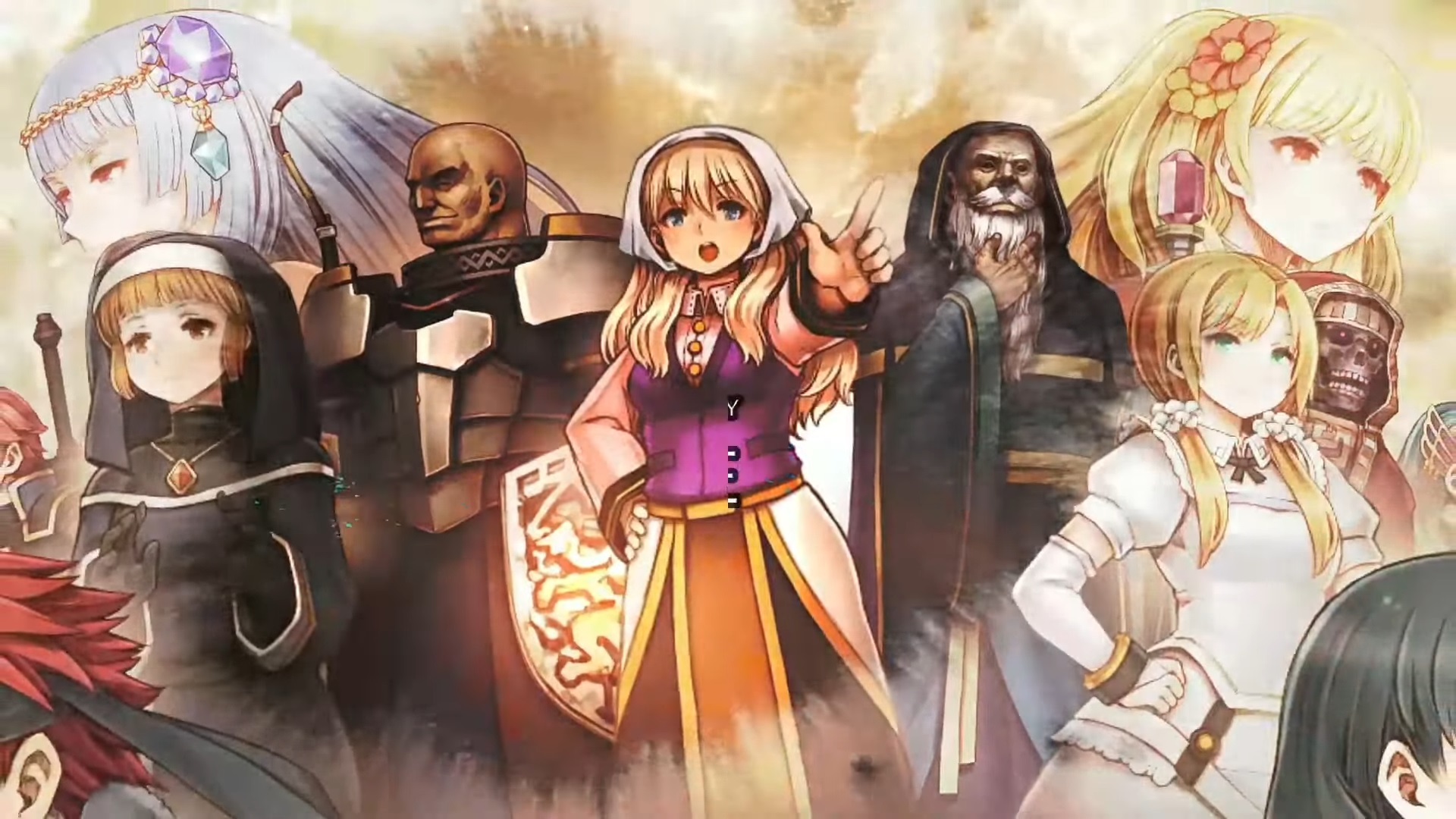Japanese solo dev behind surprise Steam mega-hit weighs in on the term JRPG: "This is a term I heard for the first time since it's not used in Japan"
A useful chat with Astlibra Revision creator Keizo

The past year or so has seen an uptick in discussion about the accuracy, validity, and appropriateness of the term JRPG, commonly used primarily among English-speaking audiences as a shorthand for themes and design sensibilities common to, and initially incubated within, RPGs made in Japan.
The term JRPG can be traced back to the likes of Final Fantasy and Dragon Quest, but today encompasses turn-based games like Persona 3 Reload or Like A Dragon: Infinite Wealth as well as action games like Tales of Arise or Final Fantasy 7 Rebirth, extending beyond an anime aesthetic or specific combat styles. Millions and millions of people seek out JRPGs looking for a specific experience, and it seems like every year the term's umbrella gets wider.
Final Fantasy 14 boss Naoki "Yoshi-P" Yoshida isn't a fan of the term and once considered it "discriminatory." In a comment (via translator) last year, he explained that "we don't go into them thinking that we're going to be creating JRPGs, we just go into them thinking we're going to create RPGs."
Bayonetta director Hideki Kamiya is generally warmer on JRPG, and argued that Japanese developers should be proud of it. "It’s more the unique differences in our culture and how our influences affect our creativity," he said, "the fact that Japanese creators have this unique sense when we do create content."
Final Fantasy veterans Tetsuya Nomura and Yoshinori Kitase, two production leads on Final Fantasy 7 Rebirth, were split, with Nomura saying he's "not too keen" on it.
"When we started doing interviews for the games that I started making, no one used that term – they just called them RPGs," he told The Guardian. "And then at some point – I can't remember exactly when – people started referring to them as JRPGs. And I'm not really sure what the intent behind that is. It just always felt a bit off to me, and a bit weird. I never really understood it – or why it's needed.
Kitase, meanwhile, doesn't see it as problematic and veers closer to Kamiya's reading. "If [JRPG] is only used in terms of differentiating – maybe showing off a slightly different approach to games or a unique flavor in terms of Japanese-made games – I'm absolutely fine with that," he said.
Sign up to the GamesRadar+ Newsletter
Weekly digests, tales from the communities you love, and more

JRPG does not exist in a vacuum and is never the only, or arguably even the best, way to describe a game. There's definitely a lot to unpack here, including the term's documented, once-derogatory usage. In previous console generations especially, it was sometimes used to pigeonhole Japanese games perceived by some to be of a lower quality. Oppositely, praise for JRPGs might be weaponized to say a game is good 'for a JRPG,' or to imply that this is the only type of game that Japanese devs are capable of – both patently ridiculous arguments.
Then there's its connection to actual Japanese developers as opposed to devs the world over who may be emulating the same style, as is the case with games like the Chrono Trigger-inspired Sea of Stars. What about RPGs made by Japanese devs that present more like Western RPGs? FromSoftware's Elden Ring and even Final Fantasy 16, which is proudly Game of Thrones-esque and distinctly action-heavy, are relevant examples there. (In addition to shutting down any negative connotations, our own Dustin Bailey did a good job of tackling the question, if developers don't like the term JRPG, what do we use instead?)
Intrigued by the ongoing debate, I was eager to put the question to the creator of Astlibra Revision, a solo Japanese dev who goes by Keizo. I was excited to finally talk to the guy behind what's quietly become one of the highest-rated JRPGs – there it is again – on Steam, and asked how he felt about the term as a general descriptor, and as a description of Astlibra Revision specifically. I asked in large part because the game boasts of going "back to the golden age of JRPGs" in its Steam and Nintendo Switch store pages. It was a translated email interview and I sadly wasn't able to follow up in-depth, but his response is very interesting to me:
"This is a term I heard for the first time since it's not used in Japan. If it means a game made by Japanese people, then I think Astlibra fits that description."
It's a literal interpretation, but a fair one, and one that highlights not just important regional differences, but also how much meaning is prescribed, assumed, and potentially lost whenever JRPG is used. Keizo very specifically made Astlibra Revision "simply because I wanted to play an action RPG," and as a bit of anecdotal evidence, "action RPG" is the most-used user-defined tag on its Steam page. But it's swiftly followed by JRPG, and in my mind the term is a fair fit in the same way that you could reasonably call the Ys games both JRPGs and action RPGs. The whole thing is a mess, clearly, but I think it's a permissible mess as long as the term is used to describe, categorize, and recommend games in good faith, even if we never reach a perfect definition of JRPG.
After writing one of the wildest narratives I've seen in a game, Keizo agrees "it was a miracle that the story came together in the end."

Austin has been a game journalist for 12 years, having freelanced for the likes of PC Gamer, Eurogamer, IGN, Sports Illustrated, and more while finishing his journalism degree. He's been with GamesRadar+ since 2019. They've yet to realize his position is a cover for his career-spanning Destiny column, and he's kept the ruse going with a lot of news and the occasional feature, all while playing as many roguelikes as possible.


